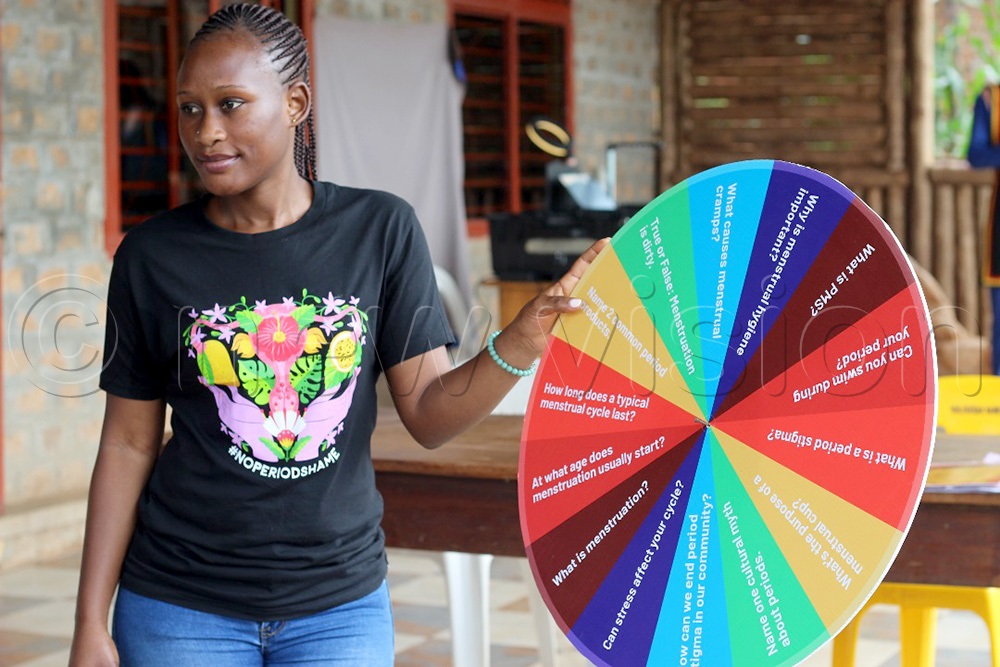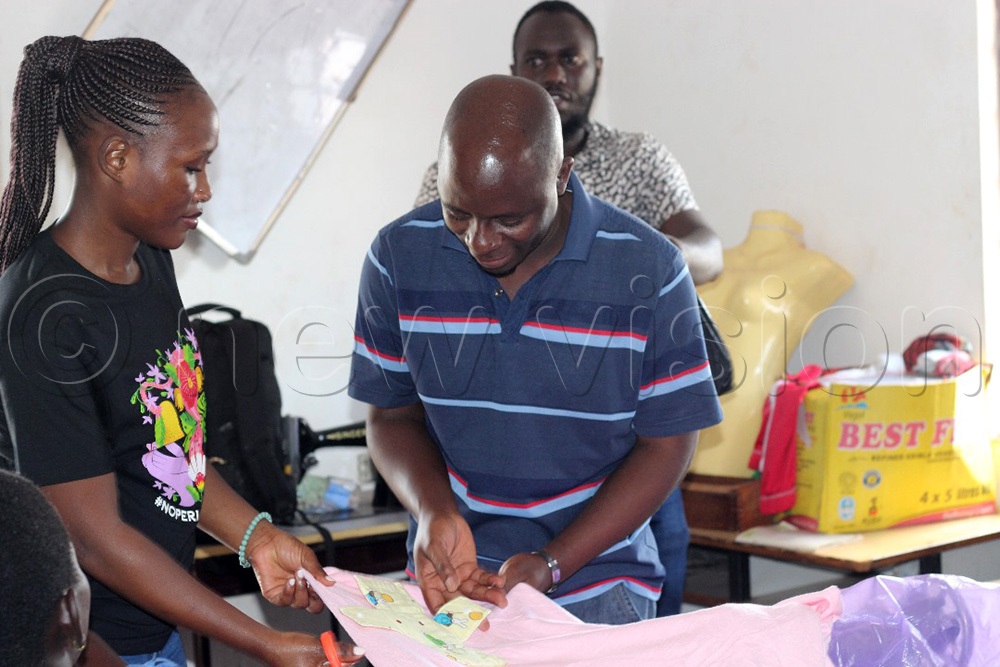How girls are stitching away menstrual period shame
The Menstrualize workshop, held at the Set Her Free Centre on October 18, 2025, in Kawempe, brought together dozens of young women and girls to break period stigma through batik-making, reusable pad creation, and open storytelling.
Girls involved in a menstrual health game during a Menstrualize workshop, held at the Set Her Free Centre on October 18, 2025, in Kawempe. (Photo by Richard Ategeka)
By Richard Ategeka
Journalists @New Vision
__________________
A bold menstrual health initiative is transforming fashion into activism and art into a tool for change in Kampala.
The Menstrualize workshop, held at the Set Her Free Centre on October 18, 2025, in Kawempe, brought together dozens of young women and girls to break period stigma through batik-making, reusable pad creation, and open storytelling.
The event, which combined practical skills with creative expression, aimed to address menstrual stigma, period poverty, and environmental sustainability using fashion as a medium for advocacy and dignity.
Robert Musema, a fashion designer and founder of Msema Culture, said the approach is strategic and personal, with fashion used as a billboard.
Miriam Kanyago, a menstrual health activist from the Buntu Wellbeing Experience Network, explains menstruation using the spinning game. (Photo by Richard Ategeka)
“We realised fashion and art have power,” he said. “When people wear these clothes, they’re not just wearing fabric; they’re wearing stories and messages.”
Musema, also the team leader of Menstrualize, explained that the project was born out of frustration with traditional awareness methods.
“Lectures may not pull crowds, but when we make art and dye fabric, people come to participate and hear the message,” he noted.
The initiative also tackles the economic aspect of menstrual health through zero-waste reusable pads, which are both affordable and eco-friendly.
“Most communities we work with can’t afford pads. But if you learn to make reusable ones, you save money and earn too,” he explained.
“Disposable pads might also be expensive to some girls and are harmful to the environment when not properly disposed of. But with four reusable pads, you’re covered for some good time.”
Merging art with action is what makes Menstrualize different, as girls leave with a skill at no cost and feel empowered.
Menstruation is not dirty
Miriam Kanyago, a menstrual health activist from the Buntu Wellbeing Experience Network, focused on the deep cultural stigma still attached to menstruation and the urgent need to shift mindsets.
“Girls face shame, stigma, and silence. Many can’t even access basic pads or pain relief,” she said. “People still think periods are disgusting. That needs to change.”
Kanyago emphasised the need for government intervention.
“The same way condoms are accessible everywhere, pads should be too. A girl shouldn’t have to choose whether or not to manage her period,” she said. “Period-proofing public spaces should be a national priority.”
She also urged communities to involve men and boys.
“Menstruation involves everyone, not just girls. Fathers, brothers, husbands, they should all be part of this conversation.”
Make it normal
Patrick Kityamuwesi, a social worker with Msema Culture, highlighted how stigma often starts early, especially in schools.
“When a girl stains her uniform, boys laugh. That shame sticks. We bring boys into these activities too, so they learn this is natural,” he said.

Miriam Kanyago, a menstrual health activist from Buntu Wellbeing Experience demonstrates on how to make re-usable pads using the available materials. (Photo by Richard Ategeka)
Kityamuwesi added that the fun, hands-on model of the programme made it more effective.
“We’re not just talking theory. We teach through games, through making things. It helps the girls understand their bodies and their rights.”
He also called for more research into managing menstrual pain and challenges beyond pads.
“Cramps, pain, and emotional stress are real issues. We need better solutions, not just supplies.”
Girls take the lead
Participants like Shantal Nantambi left the event with new confidence.
“I’ve learned how to make pads and how to teach my younger sisters,” she said. “Before, I didn’t know much about hygiene or what to do when periods started.”
Wabulakombe Namuzungu was relieved to find a solution to the high cost of disposable pads.
“Buying pads all the time has been hard. Now I can make my own and even help others. It also helps the environment,” she said.
